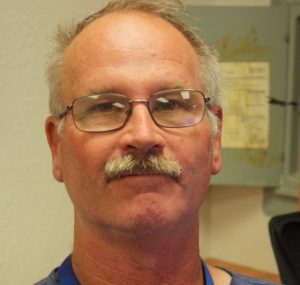
“I’ve been homeless for 15 years. No one has been nice to me until now!” “Joe” broke down and cried when David Cates, RN for Livingston Memorial Visiting Nurse Association gave him a sandwich, a sleeping bag, and a goodie bag filled with water, band aids, face wipes, fruit bars and applesauce.
David works with the CATCH (COPD Access To Community Health) Program, a grant-funded initiative, implemented through the Ventura County Health Care Agency (VCHCA). Livingston is the only healthcare agency that is partnering with VCHCA. It is a free-of-charge program designed to improve health outcomes for Medicare and Medi-Cal patients diagnosed with COPD (Chronic Obstructive Pulmonary Disease). COPD is a group of lung diseases that block airflow and make it difficult to breathe. It includes emphysema, chronic bronchitis, and severe asthma.
Livingston has three nurses on the CATCH Team. 70% of the patients David sees are homeless. Every Tuesday the CATCH Team meets to do a preliminary assessment and plan of care for the list of patients under the guidance of Program Director Sandra Tovar and Pulmonologist Dr. Chris Landon. The nurses are equipped with pertinent patient education materials and pulmonary function assessment tools as they go out to meet the patients. For the homeless, the meeting could be at the One Stop Center (which provides medical and behavioral assistance, housing options, employment assistance, etc.) a parking lot or along a river bed.
A lung function test is done. Smoking cessation counseling is offered. Nurses review medication and teach about proper use. They provide diet counseling and refer patients to services according to their needs. As David says, “Education is the biggest thing we do.”
Joe has diabetes. David showed him how to read the label on a can of peaches to warn him about the high sugar content. He swapped the peaches for an apple. With a little bit of education, Joe’s blood sugars have stabilized.
The goal of the CATCH program is not just to reduce emergency visits and hospitalizations, but to improve the quality of life for patients through smoking cessation classes and support, improved medication regimen, nutrition counseling and emotional support.
